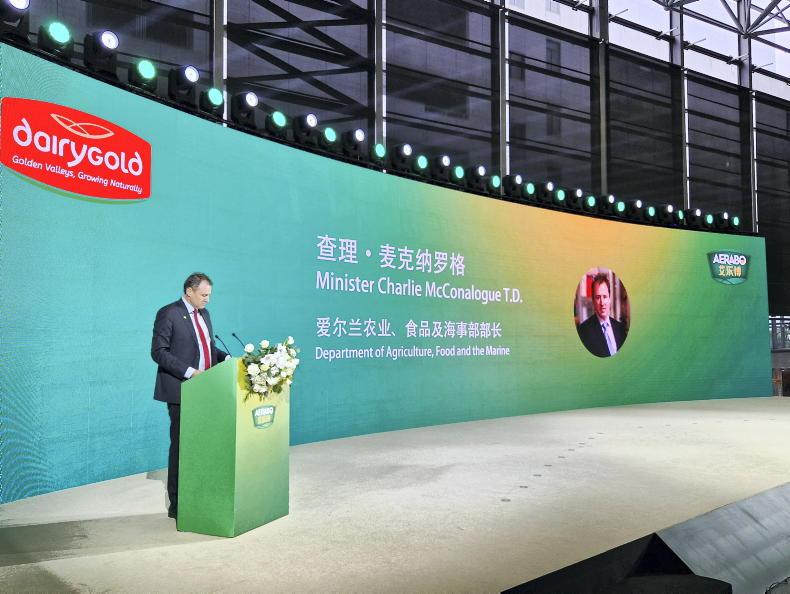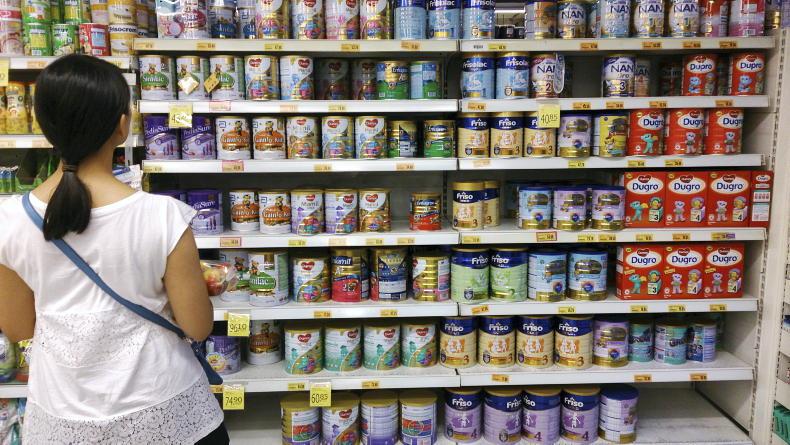The news that Wyeth is closing its facility in Askeaton in Co Limerick, with the potential loss of 542 high value jobs, is a huge blow for the region.
In its announcement of the move, parent company Nestlé said that it had not been able to find a buyer for the facility, but remained “open to approaches from a credible buyer”.
So, in looking at the impact of this event, the likelihood of finding a buyer is probably a good place to start.
Unfortunately, for employees of the company, industry sources we have spoken to since the announcement all say the same thing: Wyeth’s cost base, and particularly its wage-bill, are way out of sync with the rest of the industry (see Figure 1).
With costs per employee at approximately twice the industry average, an Irish dairy buyer is unlikely to step forward.
The company also maintains a defined benefit pension plan for employees, which has needed and will continue to need regular top-ups.
The facility itself has been subject to falling output since 2017, with volume dropping 11% last year alone.
It is hardly surprising that the factory is struggling to find a buyer, especially at a time when profit margins are under pressure across the industry.
China crisis
Data from Bord Bia shows the export market for infant formula has been falling since 2018, particularly to the critical Chinese market.
Five years ago, China/Hong Kong imported just over 59,000t of Irish infant formula. That collapsed to 23,606t last year.
Global exports were down 60,000t. There is no way that kind of a drop in export markets can be sustained without some companies falling victim.
Wyeth, by virtue of its cost base, was the most vulnerable to the collapse in exports and, it seems, unable to find new markets or produce different products.

Minister Charlie McConalogue speaks at the launch of Dairygold's Aerabo adult nutrition product in Shanghai.
As one industry analyst put it to me this week, Wyeth found itself obsolete, like a fax-machine manufacturer in an email world.
The rest of the industry in Ireland seems to be less immediately under threat from the drop in infant formula sales to China.
However, if the numbers into that key market continue to fall – and data for 2023 so far certainly seems to suggest that is the case – then it is only a matter of time before changes will have to be made.
What’s driving the China collapse?The infant formula market in China for foreign firms exploded in the wake of the melamine scandal in 2008. Major global dairy producers were quick to jump into the market, where margins of 50% were achievable.
China also went through something of a 'baby boom' in the early years of the last decade, which meant further expansion of demand.
However, as quickly as the market emerged, it is evaporating. There are two main drivers for this – the birthrate in China has collapsed (Figure 2), and there is a drive to encourage domestic supply while having tighter controls on imports.
Companies who have freely exported to that market are finding themselves facing tighter regulations this year, including curbs on the number of different products that can be supplied, as well as stricter controls over what is in the formulas.
Adding to the pressure is the Chinese government’s stated goal of expanding domestic dairy production, with a five-year plan announced last year to improve efficiency and output from the country’s herd.
Comment
For Irish producers, there was something of a stay of execution last year, when severe production problems in the US provided a large, if temporary, market for Irish infant formula. With those problems largely resolved now, infant formula producers will have to work harder to find markets.
All is far from lost, however, even in China, as there are opportunities in the adult nutrition market which Irish companies like Dairygold and Kerry are already targeting, having launched products to cater for older customers this year.
In recent weeks, China’s ambassador to Ireland specifically singled out that sector as one Irish companies should target.
There are also expanding markets in Indonesia, Thailand and the Philippines, according to Bord Bia.
Fundamentally, the extra large profits that were available in the infant formula to China’s market were never going to last.
However, the speed at which the market reversed has come as a surprise to many. There is likely to be further industry consolidation on a global level as production capacity needs to be reduced.
For Irish producers, it will be the ones who fail to diversify their products and customers who will be under the most pressure.
The news that Wyeth is closing its facility in Askeaton in Co Limerick, with the potential loss of 542 high value jobs, is a huge blow for the region.
In its announcement of the move, parent company Nestlé said that it had not been able to find a buyer for the facility, but remained “open to approaches from a credible buyer”.
So, in looking at the impact of this event, the likelihood of finding a buyer is probably a good place to start.
Unfortunately, for employees of the company, industry sources we have spoken to since the announcement all say the same thing: Wyeth’s cost base, and particularly its wage-bill, are way out of sync with the rest of the industry (see Figure 1).
With costs per employee at approximately twice the industry average, an Irish dairy buyer is unlikely to step forward.
The company also maintains a defined benefit pension plan for employees, which has needed and will continue to need regular top-ups.
The facility itself has been subject to falling output since 2017, with volume dropping 11% last year alone.
It is hardly surprising that the factory is struggling to find a buyer, especially at a time when profit margins are under pressure across the industry.
China crisis
Data from Bord Bia shows the export market for infant formula has been falling since 2018, particularly to the critical Chinese market.
Five years ago, China/Hong Kong imported just over 59,000t of Irish infant formula. That collapsed to 23,606t last year.
Global exports were down 60,000t. There is no way that kind of a drop in export markets can be sustained without some companies falling victim.
Wyeth, by virtue of its cost base, was the most vulnerable to the collapse in exports and, it seems, unable to find new markets or produce different products.

Minister Charlie McConalogue speaks at the launch of Dairygold's Aerabo adult nutrition product in Shanghai.
As one industry analyst put it to me this week, Wyeth found itself obsolete, like a fax-machine manufacturer in an email world.
The rest of the industry in Ireland seems to be less immediately under threat from the drop in infant formula sales to China.
However, if the numbers into that key market continue to fall – and data for 2023 so far certainly seems to suggest that is the case – then it is only a matter of time before changes will have to be made.
What’s driving the China collapse?The infant formula market in China for foreign firms exploded in the wake of the melamine scandal in 2008. Major global dairy producers were quick to jump into the market, where margins of 50% were achievable.
China also went through something of a 'baby boom' in the early years of the last decade, which meant further expansion of demand.
However, as quickly as the market emerged, it is evaporating. There are two main drivers for this – the birthrate in China has collapsed (Figure 2), and there is a drive to encourage domestic supply while having tighter controls on imports.
Companies who have freely exported to that market are finding themselves facing tighter regulations this year, including curbs on the number of different products that can be supplied, as well as stricter controls over what is in the formulas.
Adding to the pressure is the Chinese government’s stated goal of expanding domestic dairy production, with a five-year plan announced last year to improve efficiency and output from the country’s herd.
Comment
For Irish producers, there was something of a stay of execution last year, when severe production problems in the US provided a large, if temporary, market for Irish infant formula. With those problems largely resolved now, infant formula producers will have to work harder to find markets.
All is far from lost, however, even in China, as there are opportunities in the adult nutrition market which Irish companies like Dairygold and Kerry are already targeting, having launched products to cater for older customers this year.
In recent weeks, China’s ambassador to Ireland specifically singled out that sector as one Irish companies should target.
There are also expanding markets in Indonesia, Thailand and the Philippines, according to Bord Bia.
Fundamentally, the extra large profits that were available in the infant formula to China’s market were never going to last.
However, the speed at which the market reversed has come as a surprise to many. There is likely to be further industry consolidation on a global level as production capacity needs to be reduced.
For Irish producers, it will be the ones who fail to diversify their products and customers who will be under the most pressure.








 This is a subscriber-only article
This is a subscriber-only article











SHARING OPTIONS: